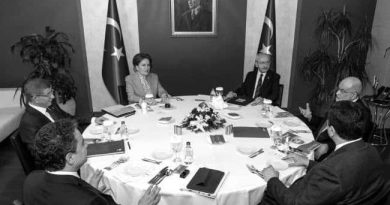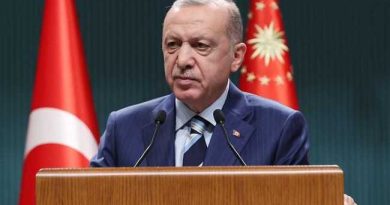CPJ slams Turkish authorities for jailing journalists
The issue of many jailed journalists in Turkey has been on the agenda of several institutions, recently. CPJ (Committee to Protect Journalists) which is among them has published a report slamming the Turkish authorities over the issue. CPJ has used some strong words saying that Turkish authorities are engaging in widespread criminal prosecution and jailing of journalists, and are applying other forms of severe pressure to promote self-censorship in the press.
The organization has also commented that it has observed highly repressive laws, particularly in the penal code and anti-terror law; a criminal procedure code that greatly favors the state; and a harsh anti-press tone set at the highest levels of government adding Turkey’s press freedom situation has reached a crisis point.
To be even stronger CPJ has used the expression “The Dark Days of Jailing Journalists.. “
The Ak Parti government credited for major positive economic developments in the country has received much criticism both locally and from abroad for its practices regarding trials, investigations and excessively long detainments of former military personnel as well as journalists denounced for participating in coup attempts against the government.
ABOUT CPJ
The Committee to Protect Journalists is an independent, nonprofit organization founded in 1981. We promote press freedom worldwide by defending the rights of journalists to report the news without fear of reprisal. Below are answers to some frequently asked questions about CPJ.
CPJ has a full-time staff of 23 at its New York headquarters, including area specialists for each major world region. CPJ has a Washington, D.C. representative, and consultants stationed around the world. A 35-member board of prominent journalists directs CPJ’s activities.
CPJ is funded solely by contributions from individuals, corporations, and foundations. CPJ does not accept government funding.
Why is press freedom important?
Without a free press, few other human rights are attainable. A strong press freedom environment encourages the growth of a robust civil society, which leads to stable, sustainable democracies and healthy social, political, and economic development. CPJ works in more than 120 countries, many of which suffer under repressive regimes, debilitating civil war, or other problems that harm press freedom and democracy.
How does CPJ protect journalists?
By publicly revealing abuses against the press and by acting on behalf of imprisoned and threatened journalists, CPJ effectively warns journalists and news organizations where attacks on press freedom are occurring. CPJ organizes vigorous public protests and works through diplomatic channels to effect change. CPJ publishes articles and news releases; special reports; and Attacks on the Press, the most comprehensive annual survey of press freedom around the world.
Where does CPJ get its information?
CPJ has full-time program coordinators monitoring the press in Africa, the Americas, Asia, Europe and Central Asia, and the Middle East and North Africa. They track developments through their own independent research, fact-finding missions, and firsthand contacts in the field, including reports from other journalists. CPJ shares information on breaking cases with other press freedom organizations worldwide through the International Freedom of Expression Exchange, a global e-mail network.
22.10.2012
Editor, BTT




